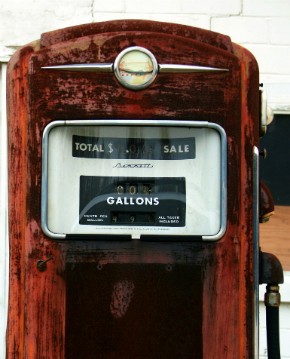Raise the gas tax
Imagine a tax increase that makes sense to Republicans and Democrats, liberals and conservatives, the Chamber of Commerce and unions, truckers and environmentalists. Imagine a tax increase that some politicians would call a “no-brainer.”
That would be an increase in the tax on gasoline. And since gas is cheaper than it’s been in years, now is an opportune moment to enact it.
For years environmentalists have called for a tax on carbon-emitting fuels as a way of steering consumer and corporate behavior. The aim is to reduce the burning of coal and gasoline, which releases carbon dioxide into the atmosphere and contributes to the heating of the planet. Raising the price of gas would discourage consumption, reduce pollution, encourage the use of alternative transportation, and spur the purchase of fuel-efficient vehicles.






